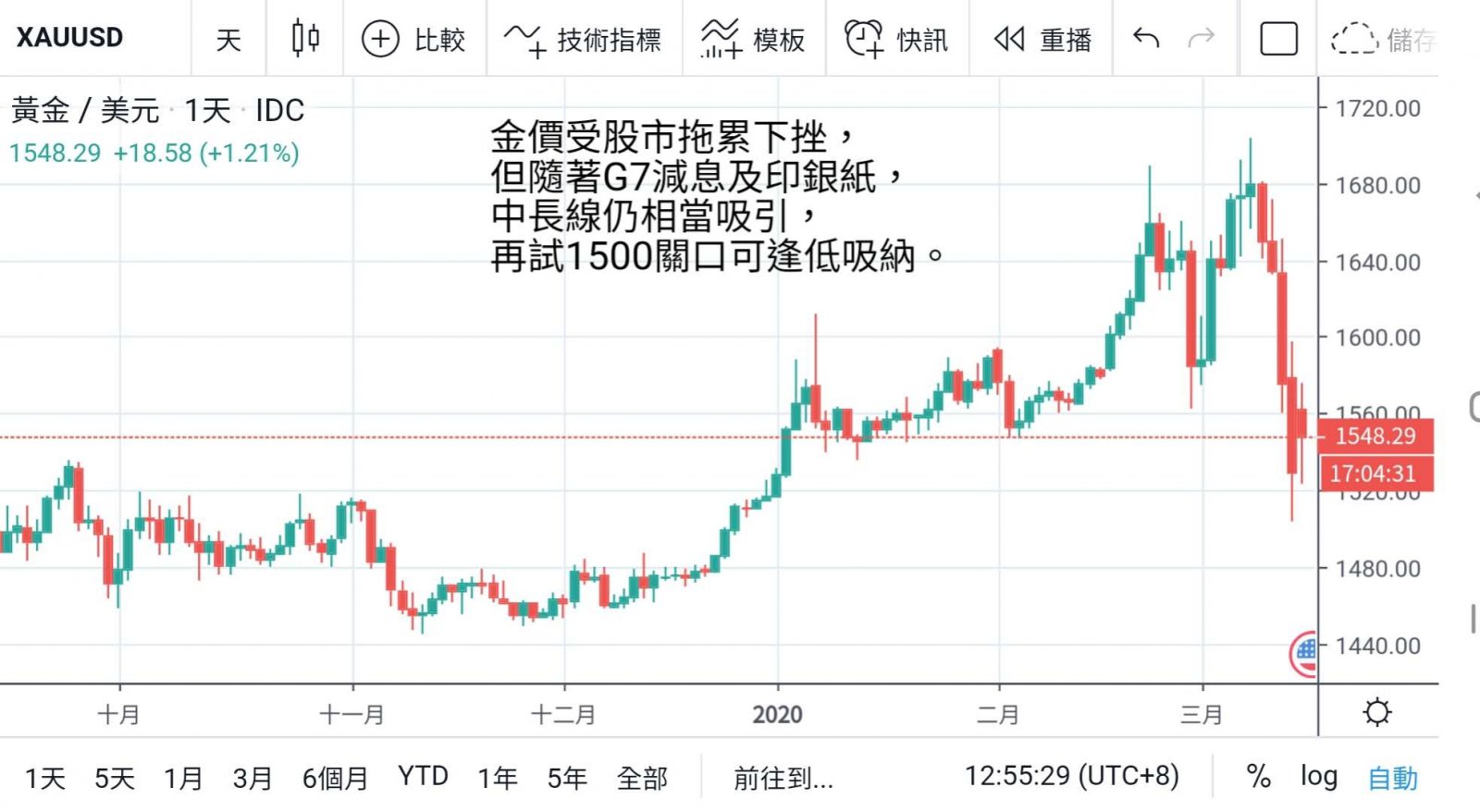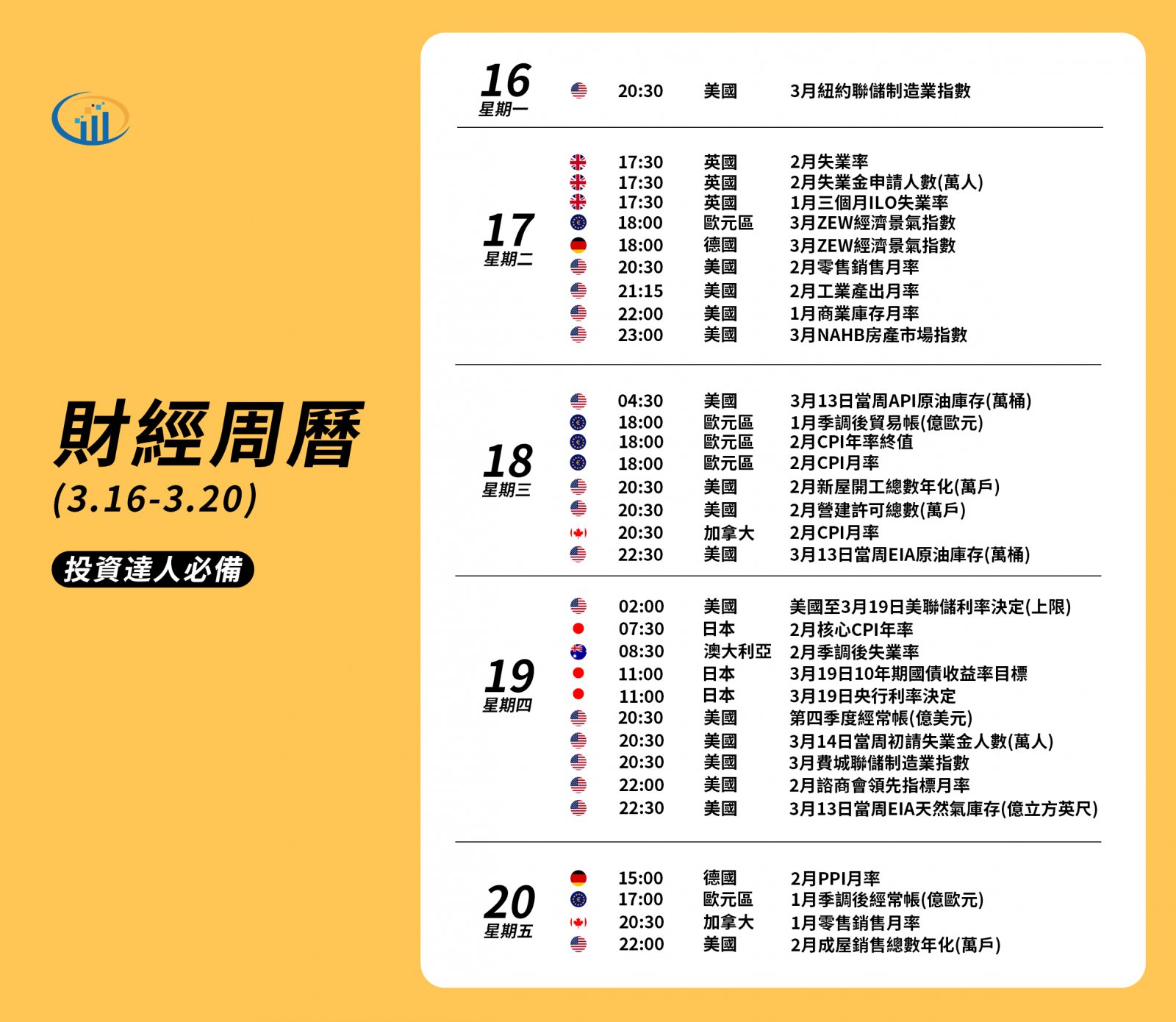G7 Jointly Rescued Market Financial Market Fluctuating
Last week, central banks of various countries continued to rescue the market. In response to novel coronavirus's ravages on Europe and the United States, various countries felt that there was no risk in their communities and closed their cities one after another, causing an unprecedented crisis in financial markets.
The stock market fell one after another to prevent the funds from breaking. G7 joined hands to cut interest rates to rescue the market and launched a new round of QE to rescue the market. Last Friday, U.S. stocks rebounded sharply from their lows.
However, it still recorded the smallest single-week decline in recent years. The Federal Reserve slashed interest rates by 1% early Monday morning, even before markets in the Asia-Pacific region opened.
However, on the contrary, the relevant actions have caused panic in the market. U.S. stock futures have fallen and oil prices have plunged by more than 6%. Gold prices and Japanese yen have soared, but have since retreated again. The epidemic crisis continues to plague market sentiment.
The short-term fluctuations in financial markets have expanded, and risks need to be carefully handled before entering the market.
The Federal Reserve said that the epidemic has damaged the society and economy of many countries, including the United States, and the global financial environment has been significantly affected. The reduction in interest rates will help support the U.S. economy, stabilize the job market,
While maintaining the inflation target, the Federal Reserve announced a large-scale quantitative monetary easing plan of 700 billion US dollars, including the repurchase of at least 500 billion US dollars of government bonds within a few months.
Increase holdings to 200 billion US dollars in mortgage backed securities. The Federal Reserve cut interest rates by half a percentage point only at the beginning of the month. This time, it will cut interest rates by another percentage point in less than two weeks outside the regular meeting.
After the financial tsunami in 2008, the interest rate policy was set to zero again.
Although interest rate cuts will help reduce the cost of holding gold for investors and QE will also highlight the ability of gold to preserve its value, due to the decline in the global market, capital was once tight, resulting in a considerable impact on hot money flowing into the gold market.
At present, the stock market must begin to stabilize in order to ease the crisis in the asset market. Gold prices rebounded sharply to US$ 1,575 with interest rate cuts across the world after narrowly keeping the psychological barrier of 1,500 last week.
The trend is rather volatile. Gold still has the opportunity to try again last week's low price. However, due to the deep correction, and with the policies of various countries to rescue the market, it is no longer appropriate to sell short the low price of gold.
On the contrary, we can seize the opportunity to enter the market at a low price and be prepared to bargain for goods. Under the conditions of low interest rates and the introduction of silver paper from various countries, once the stock market stabilizes, funds will begin to seek rescue and hedge and flow into the gold market. However, short-term market conditions will be more volatile and stop losses must be strictly observed.
Previous Article Next Article


 Whatsapp
Whatsapp Telegram
Telegram

